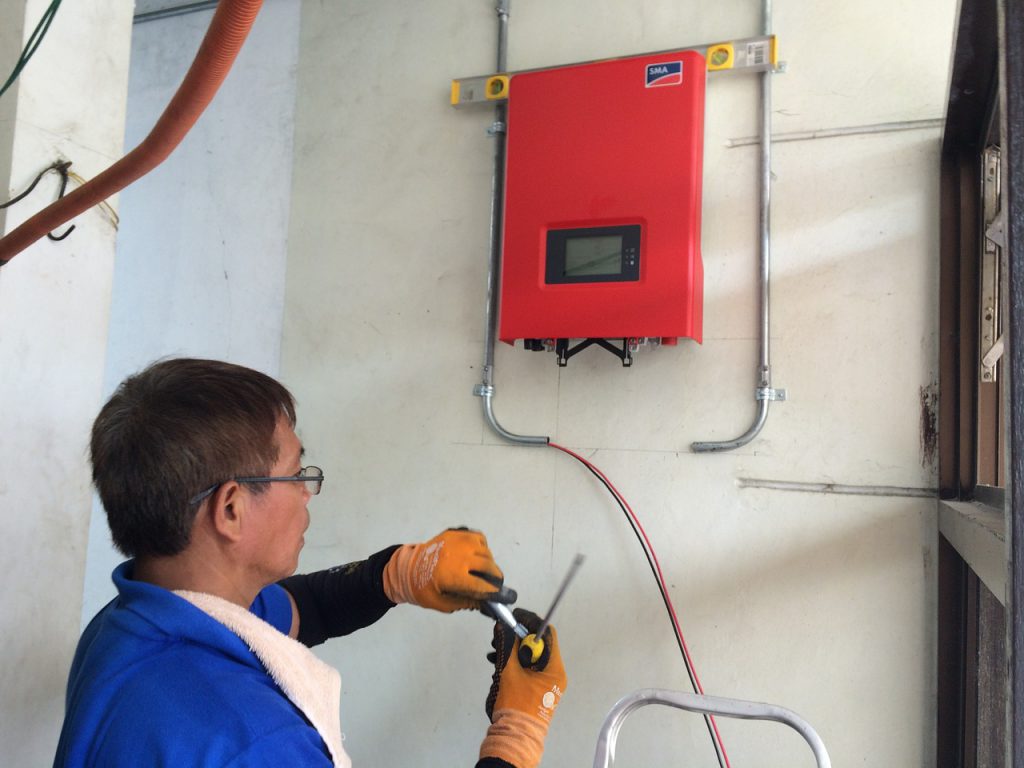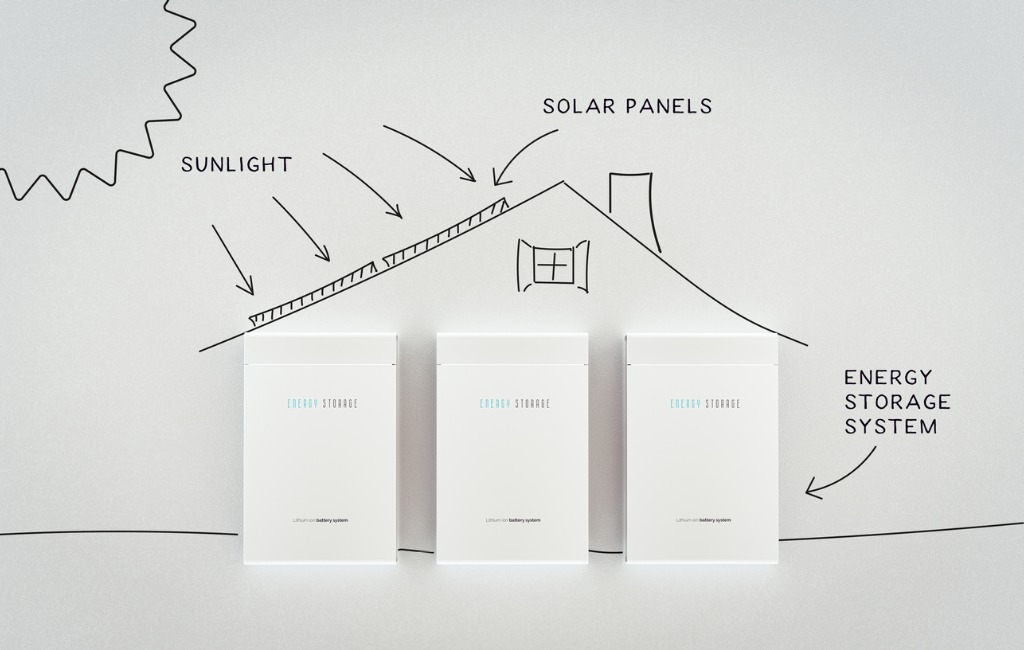We’ve all been there: the lights in your home begin to flicker and then before you know it, the power goes out. Your electricity might be out for an hour, or even days in certain situations. If you’re thinking of going solar, one of the many questions that you have might be whether your solar panels would work in the event of a power outage. Unfortunately, if you have a grid-tied system and no battery backup, you won’t be able to generate power during an outage. But there are ways to keep your electricity on even if everyone around you is losing power!
Grid-Tied & Off-Grid

First let’s talk about the difference between being tied to your utility grid and being off the grid. When you install a grid-tied solar power system, you will be connected to your local grid and be able to draw electricity from the grid when necessary, such as at night or on particularly cloudy days. You will even be able to sell any excess energy that your system creates back to the grid and get credit to use later through a billing mechanism called net metering.
If your system is off-grid, you are not connected to the utility grid and will be solely dependent on your solar power system for electricity. Having an off-grid system will require you to have enough backup battery storage to power your home through the night and on cloudy days. Backup batteries can be quite expensive, which is why the majority of people with solar energy systems in the U.S. use grid-tied systems.
If your system is grid-tied, and you do not have a solar battery backup, you will not be able to use any energy that you have stored in the grid to power your home during an outage. Your solar energy system will automatically shut off for safety reasons. If your solar panel system were to try and draw electricity from the grid during an outage, this would put utility workers’ lives at risk. The workers would assume that these lines were dead and could get seriously hurt or even killed if they ended up working on wires that were “live,” or transferring energy. So, when the grid goes down, solar-energy inverters will automatically shut down as well.
Solar Battery Backup

Whether you have a grid-tied system or an off-grid system, the best way to ensure that you always have power is to have a battery backup. Backup batteries are reliable, require little maintenance, and will keep your lights on and appliances going if the grid goes down. Think of a backup battery as a generator that keeps electricity going during an outage, except you do not have to keep re-fueling it.
The only disadvantage to backup batteries is that they are expensive. Adding a hybrid inverter and batteries to your system can cost you around $15,000 for 9.8 kWh. You can keep this cost down by using as little power as possible when you need to use your solar battery backup. The more electricity you use, the more batteries you will need, and the more you will have to spend.
Your last option for maintaining power during outages is to buy a gas generator as a backup. Generators are less expensive and can backup your entire home. The only downside is that they run on fossil fuels, which are not renewable. If you choose this cheaper option, you can always consider using both a battery backup and a gas generator.
Save More

If you are interested in solar power systems, or have one and are looking to get a backup battery, Go Solar Energy can help. What makes us unique is that we will do all the work of researching and comparing plans and options, and we do it all for free! We want to help take care of you and the environment, which is why we work with the top-rated companies in the country to find you an affordable solar power system that meets your needs. To get instant free quotes, simply enter your zip code in the bar on our homepage, or for free quotes and guidance from one of our licensed agents, call 888-290-3112.
Leave a Reply